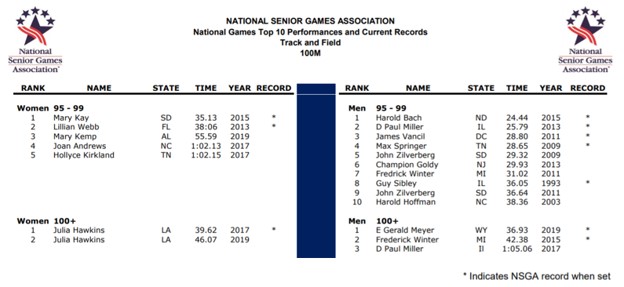 Contact
About Us
Articles
Home
Contact
About Us
Articles
Home

This article focuses on the power of the mind to influence the life you experience, with an emphasis on successful aging. We’re going to frame the discussion using the placebo effect because almost everyone is familiar with the basic concept and it is applicable to any discussion about the power of the mind.
The nocebo effect is not as well-known as the placebo effect. Both the placebo and nocebo effects refer to the same phenomenon – the power of the mind to affect the outcome achieved. The nocebo effect is the term used to describe situations where the power of the mind leads to worse outcomes, a negative effect stemming from a belief or expectation.
Your beliefs can create a placebo effect or a nocebo effect. A nocebo effect occurs when the effect is detrimental. Negative beliefs about aging reduce life expectancy and increase morbidity (illnesses and diseases) that are experienced prior to death. Negative and positive beliefs create self-fulfilling prophesies that can be called a placebo or nocebo effect.
Your own beliefs about aging exert considerable influence over the way you age, but it is not just your beliefs that influence your experience of aging. The beliefs of those around you and those you give the power to influence your attitudes about aging also have the power to influence the quality of life you experience during your senior years.
You have the ability to change your beliefs to ones that empower you and help you enjoy your senior years.
Most humans struggle to believe they can achieve something that no one else has managed to do. Once one person does something, others quickly begin achieving what was once considered impossible. Roger Bannister, the first person to break the 4-minute mile, was not classically trained , which helped him avoid developing the belief that the 4-minute mile was an impossible barrier.
More recently, immediately after Eliud Kipchoge broke the 2-hour marathon barrier, Joshua Robinson, the Wall Street Journal Europe’s Sports Editor, was predicting that others would soon follow. Why are we more likely to achieve a goal after someone else has achieved it?
Few people will believe that they can achieve something that no one else has ever done.
“Whether you think you can, or you think you can’t – you’re right”
– Henry Ford
Yet, the more we believe we can achieve, the more we do achieve. “Expectation is a powerful thing,” says Robert DeLap, M.D., head of one of the Food and Drug Administration’s Offices of Drug Evaluation. “The more you believe you’re going to benefit from a treatment, the more likely it is that you will experience a benefit.” What we expect is determined by what we believe.
Research demonstrates that placebo and nocebo effects are real and have powerful influences on patient outcomes.
“Words are the most powerful tool a doctor possesses, but words, like a two-edged sword, can maim as well as heal.”
– Bernard Lown
Harvard School of Medicine researchers Rebecca Erwin Wells and Ted J. Kaptchuk found that the nocebo effect can lead to a host of negative consequences.
“Evidence suggests that the nocebo effect can significantly increase various nonspecific symptoms and complaints, resulting in psychological distress, significant excess costs because of increased medication non-adherence, extra treatment visits and additional medicines prescribed to treat the nocebo effects,” their study.found. They also note CDC researcher Robert A. Hahn’s findings that “the power of nocebo suggests that it may be healthier to err on the side of optimism than on the side of pessimism.”
Words designed (whether intentionally or through ignorance) to reduce an individual’s belief in their ability to get better are psychological attacks. Psychological harm is far more than bad feelings. When someone is stressed, their immune function declines.
“On the basis of the healer’s/doctor’s words, attitudes, and behaviors, several cognitive and emotional mechanisms are activated in the brain of the sick, such as those involved in complex functions like trust and hope. These, in turn, lead to expectations and beliefs, which represent some of the principal elements involved in the placebo responses,” Wells writes.
Researchers consistently report an association between positive self-perceptions about aging and an increase in preventive health behaviors. The way the medical and research communities discuss aging influences us toward negative perceptions of aging. Seniors can take a lead in encouraging clinicians to understand this relationship.
The way you talk to yourself makes a difference in how you perceive your place in the world, your abilities and the actions you take.
In the same way, your beliefs about what is possible for you at a particular age influences what you try to do. If you don’t try, you can’t achieve it, even if it would have been possible for you if you had tried. Positive self-talk can create a placebo effect. Negative self-talk can create a nocebo effect.
Create and reinforce positive beliefs about aging in your own mind. What you believe about aging can change the outcomes we experience.
Beliefs are formed by thinking the same thought repetitively. A belief is just a thought you thought repeatedly until you created a neuropathway in your brain that becomes easier for your thoughts to travel than other options. When you begin thinking a different thought on purpose, repeatedly, you can shift the neuropathway.
The people who have the most influence over your beliefs about aging are the ones you give that power to. If you don’t give them the power, they can’t exert influence over you.
Ideally, you will have the strongest influence over your own attitude about aging. In order to do that, you have to be mindful of other potential influences and choose those you allow to influence your attitudes and beliefs with care.
If you don’t take control of who you allow to influence your beliefs, the ageist beliefs of others will color your own views, painting them with a negative bias that creates a nocebo effect.
Who are the most common contributors to the negative views about aging?
Doctors have a high level of authority with most people. That’s good when it comes to treatments, but it is often bad when it comes to expectations about aging. Many of us have encountered a doctor who encouraged negative expectations about the future of their health that wasn’t in conjunction with a diagnosis. This experience is particularly common after birthdays ending in a zero.
Has your doctor told you any of the following?
You get the idea. All of these ageist attitudes can have a nocebo effect. They may argue that this is simply reality when you’re getting older, but the truth is that it is not everyone’s reality as they age. Later, we’ll provide examples of aging that defy these stereotypes. If you believe that years of decline before you pass is your destiny, it is more likely to be your experience. Many people are healthy well into old age, why not you?
Whether they are with us or their influence stems from our past encounters, our parents can significantly influence our expectations about aging. If you like the way your parents lived in their older years, you’re probably in good shape. If you think they could have done better, you may want to spend some time looking at your own expectations.
Your spouse has the potential to have a significant influence over your attitudes about aging. If they tend to be negative, the best course of action is to work on your own attitudes and lead by example. Trying to change someone else’s views most often leads to arguments and causes them to defend their position. If you’re both looking for ways to have a positive attitude about aging, agree to point out unconscious biases when you note them. If they’re not on the same page, leading by example is the easiest way to gain their cooperation.
Frequent exposure to negative views of aging have an unconscious influence. Being more aware when it happens and who you’re with or what you’re doing when it happens will help you negate the influence. For example, if you see a funny meme on Facebook about aging, it’s fine to enjoy it. But remind yourself that the experience of aging reflected in the meme doesn’t have to be the way you experience aging. Spending a moment reflecting on examples of successful aging goes a long way toward neutralizing negative influences.
It is not necessary to attack them publicly or privately. Your ability to develop a positive mindset about aging is dependent on how you use your mind.
If your circle of friends has negative attitudes, you may want to expand your circle to include people with positive views about aging. Individuals involved in the National Senior Games is one place to look. Volunteer organizations are another.
If you watch daytime television or channels that attract elderly viewers like Turner Classic Movies, you’re bombarded with commercials that reinforce ageist messages including:
Muting commercials can go a long way toward eliminating these messages. Or, opt for streaming channels like Netflix that don’t have commercials.
You can look around the whole world, to people who are alive today, to historical figures and to your own imagination and seek inspiration wherever you find it.
One way to find inspiration is to look at what your contemporaries are achieving. Here are some records set at National Senior Games Association events. Growing up, I remember often seeing records that had been set many years before. I am inspired by how many of these records were set recently.

Authority figures can cause harm in innumerable ways if they don’t understand or mind the way they exert influence. Here are some examples.
Financial: By projecting the idea that being a senior citizen or being on a fixed income means you’re poor, influencers can create an artificial sense that you can’t afford to do things. While many seniors have very limited resources, others live as if they have no resources when they have enough to last the rest of their lives and, often, to leave something behind for their loved ones. You could say that they’ve been infected with a nocebo effect regarding their finances.
While you should manage risk appropriate to your financial situation, many seniors have more than enough assets to be able to enjoy their life. When limiting beliefs about their financial situation deter them from living their dream, it can lead to depression and the feeling that their life doesn’t have much meaning.
Also, when you accept that being a senior means being poor, you stop looking for solutions. There are ways to improve your finances but you won’t look for them if you believe you have to accept poverty as a way of life.
It is easy to develop cognitive distortions that make one’s situation seem worse than it is.
Safety: Back in 2003, Bernard Goldberg wrote a book exposing the media’s bias toward reporting frightening news because research showed that viewers watch more when they are afraid. Armed with the secrets Goldberg revealed in Bias: A CBS Insider Exposes How the Media Distort the News, you will be better able to refute the sense of doom they attempt to impart. You may even be able to decide to selectively choose what you decide to give your attention to.
Love: Fear can keep you from risking love later in life which can cause you to miss out on much that would bring meaning and joy in your life. One 80-year-old woman shared a story of a man who lived in her neighborhood asking her over for dinner. Two of her friends were appalled she said yes because she did not know him except in passing. Going to his home, her friends thought, was dangerous. The woman went and the gentlemen in question and her have become daily companions to one another, traveled together and shared holidays with his family since that time.
Believing that you’re too old to find love or that it is silly for you to fall in love at older ages holds people back from joys they could experience.
Significance: If influencers and authority figures convince you that you’re just passing the time until your turn to leave this world comes, your life will lack significance and meaning. When someone’s words or actions suggest this, be aware that you have a choice about whether to accept their beliefs as your own. I suggest you don’t as those views aren’t in your best interest. Set some goals and work toward achieving them. You may amaze yourself.
Growth: It can be a bit fun to rebel against common views. I can’t think of a better way to rebel as a senior citizen than to reject society’s ageist views and decide for yourself what you are capable of without making age the controlling factor in your decision.
Contribution: As you define for yourself who you want to be and what you are capable of in your 60s, 70s, 80s, 90s or beyond, you have the ability to contribute greatly to your contemporaries and future generations by reducing ageism.
Health: When authority figures like your doctor begin warning you that now that you’ve reached a certain age, your vision will begin faltering, it will be more difficult to lose weight, and that you’re vulnerable to more illnesses now that you’re old, it causes a nocebo effect. Not only does the body comply with demands from authority figures, it can also change behavior, so people stop trying because “Why bother?”
The nocebo effect can have a direct and significant negative effect on our health. It can also, if we are influenced into negative beliefs about our value, finances, and safety, increase the psychological stress we experience which also has a negative effect on our health. For a review of some of the ill health effects from stress, see my White Paper.

The examples of people who don’t live down to the stereotypes grow every day. The more visible these individuals who break the mold are to others, the more influence they’ll have to help more people believe in their ability to age well. Exposing yourself to these examples is healthy. It will help you develop more empowered perspectives about what is possible by seniors who are breaking the mold. Here’s just a small sample of seniors who exceed common expectations during their later years:
If you’re ready for more inspiration, watch this Aging is Optional YouTube Playlist that includes 75 inspiring videos where you’ll see:
Go ahead. Allow yourself to be inspired. When your brain starts to make excuses, shove them aside and tell yourself, "If they can, so can I”. Then take steps toward doing whatever you feel inspired to do. The next time your doctor begins telling you that you can’t do something because you’re so old, interrupt the doc with a story about one of these inspiring people. Then look your doc in the eye, and say, “Why aren’t you telling me what is possible?”
Although we all end the same way, what we do between the time we qualify for senior discounts and that point varies greatly. We may not have complete control over every aspect of our destiny, but we can take note of the research that shows that positive attitudes about aging lead to more desirable outcomes and work to do our best to believe in ourselves and our dreams.
Alliance America is an insurance and financial services company. Our financial planners and retirement income certified professionals can assist you in maximizing your retirement resources and help you to achieve your future goals. We have access to an array of products and services, all focused on helping you enjoy the retirement lifestyle you want and deserve. You can request a no-cost, no-obligation consultation by calling (833) 219-6884 today.


